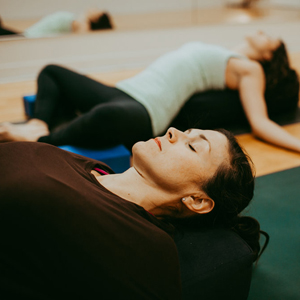“When I sleep well, I feel well.”
SLEEP. What comes to mind when you hear this word? Do you dread it due to insomnia, or other sleep issues? Do you relish in it and look forward to retreating to your bed nightly? Our relationship with sleep changes over the years and the cycles that it takes. Regardless of your relationship with it, sleep is a paramount building block to a healthy, happy life. This month let’s work together to set ourselves up for successful slumber. I think we can all agree on this one: when you sleep well, you feel well!
The truth is most of us don’t put enough emphasis on fostering and maintaining healthy sleep habits. I get it, we live full, busy lives, and often it doesn’t seem like there’s enough time in the day to get it all done. Hence, getting to bed drops in it’s rank of importance. Think about this: sleep is so integral to life that even animals out in nature where there is risk of becoming prey rest and sleep regularly.
Now that days are getting shorter, it’s a great time to work on your sleep hygiene. The science is in and the recommended amount of sleep for an adult is 7-8 hours a night. How much do you get, honestly? Are you one of those people who thinks you can function well on less? If so, you are likely fooling yourself. Leading sleep experts agree that it is rare for anyone to need fewer than 6 hours sleep to thrive. Although some people might claim to feel fine with limited sleep, scientists think it is more likely that they are simply used to the negative effects of reduced sleep. Sleep is when the body is working to repair and heal our cells, and maintain everything in good working order. It makes sense why babies and children need so much more than adults, because there’s sooo much going on! If you have children, you have probably witnessed what sleep deprivation can look like. Moodiness, lack of emotional regulation & disorientation, just to name a few symptoms. Thankfully, most often eventually kids will literally fall asleep in the middle of what ever they are doing. Cue adorable videos of kids falling asleep mid meal. Adults are no different. Lack of sleep on even a semi regular basis is being linked to more serious issues than being grumpy. It’s being linked to obesity, decreased immune function, cardiovascular disease and hypertension. SLEEP IS IMPORTANT, let’s make it a priority this month!
Here’s a few ways to help you set yourself up for a successful night’s sleep.
1) Set a time! Know when you have to get up and plan for 9 hours to start, until you get into a good routine.
2) Treat yourself like a child, plan a “bedtime routine”. This can look like a warm bath, tea, or a good book (as long as this doesn’t stimulate you). Do all of this BEFORE your designated bedtime. If you want to be sleeping at 10pm because you’re waking at 6am (8hours), then start your loving, relaxing bedtime routine at 9pm so your body is ready for sleep once you get into bed.
3 )Put your electronics away…..an hour before you plan to retire for the night. Try not to sleep with your phone even in your room.
4) Limit what you watch before bed, stay away from anything disturbing and/or stimulating. True story, in the past two days three people have told me they watched the Netflix movie about Jeffery Dahmer and they all had crappy sleeps. This is a tested example of what not to watch.
5) You can have a small snack, not too much or too close to bed, but a nibble of pineapple, banana, or oatmeal, will also help promote deeper sleep.
6) Go to bed and wake up at the same time daily, even on days off. Sleeping in on the weekends can actually mess with your week night routine.
7) Meditate and do yoga daily, close to bedtime is fine again as long as it’s not too stimulating, opt for slower paced, breath focused practices.
8) Limit Alcohol ~ I can’t emphasize this one enough. Again, it’s a myth that it brings you into a deep sleep.
9) Keep a pad of paper by your bed (not your phone). IF you wake up and you find your mind racing, ideas, worries, whatever, jot them down and lay back down.
10) Have your room cool, the recommended temperature is between 60-65F and as dark as you can (which is easier this time of year).
Written by Nicole Whitman
Sources for this article include:
1.https://healthysleep.med.harvard.edu/healthy/science/variations/changes-in-sleep-with-age 2. https://www.cbsnews.com/news/the-science-of-sleep/
4.https://www.yahoo.com/lifestyle/always-running-6-hours-sleep-222022061.html
5.https://www.sleepfoundation.org/children-and-sleep
6.https://www.healthline.com/health/sleep-deprivation/effects-on-body#Causes-of-sleep-deprivation 7.https://www.healthline.com/nutrition/9-foods-to-help-you-sleep#9.-White-rice, https://www.today.com/health/best-foods-better-sleep-t109308

